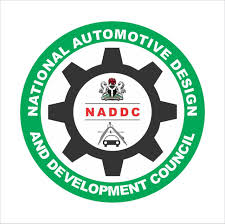The Nigerian automotive sector is poised for a major transformation, as evidenced by the recent Nigeria Automotive Industry Summit held in Lagos. The summit, a collaborative effort between the National Automotive Design and Development Council (NADDC) and the Nigeria Auto Journalists Association (NAJA), brought together key stakeholders to discuss the industry’s current state and chart a path for future success under the theme “Developing Nigeria’s Economy through the Auto Industry.”
Unlocking Potential and Addressing Challenges:
In his keynote address, NADDC Director-General Joseph Osanipin emphasized the critical role of the summit: fostering dialogue, evaluating the industry’s current landscape, and crafting a roadmap for sustainable growth. Osanipin highlighted the immense potential of the Nigerian automotive industry, fueled by a burgeoning population and a rising demand for safe, reliable, and affordable vehicles. However, he acknowledged a significant hurdle – Nigeria’s heavy reliance on imported vehicles.
“This dependence strains our foreign exchange reserves, hinders job creation within our borders, and stifles overall economic growth,” Osanipin pointed out. He underscored the urgency of transitioning Nigeria from a mere consumer to a producer of high-quality automobiles.
Aligning with National Development Goals:
Osanipin reaffirmed the NADDC’s commitment to supporting President Bola Tinubu’s “Renewed Hope Agenda” by actively promoting local production and consumption within the automotive industry. He emphasized the importance of collaboration among all stakeholders, expressing the Council’s unwavering willingness to work with any party dedicated to advancing the industry.
READ ALSO: https://thecrux.com.ng/cbn-unveils-new-guidelines-for-depositing-excess-foreign-currency-by-banks/
Government Recognizes Automotive Industry’s Significance:
Representing the Minister of Industry, Trade, and Investment, Dr Doris Uzoka, Deputy Director of the Industrial Development Department, Mrs Olumuyiwa Ajayi-Ade, underscored the summit’s timeliness. She emphasized the government’s recognition of the automotive sector as a pivotal pillar for economic development and recovery. Ajayi-Ade elaborated on the sector’s potential to be the “cornerstone of our economic recovery,” offering a multitude of benefits such as job creation and technology transfer.
Job Creation and Technological Innovation:
Ajayi-Ade highlighted the labour-intensive nature of the automotive industry, underscoring its capacity to generate thousands of jobs across the entire value chain. This focus on local production has the potential to significantly reduce unemployment and provide sustainable livelihoods for Nigerians. She concluded by emphasizing the importance of collective effort in harnessing the sector’s potential, noting the potential for driving both technological innovations through global partnerships and the establishment of indigenous research and development centres.
A Call to Action for a Sustainable Future:
The summit brought together a diverse group of participants, including representatives from the Nigerian Customs Service (NCS), the Nigerian Automobile Manufacturers Association (NAMA), the Automotive Local Components Manufacturers Association of Nigeria (ALCMAN), and the Nigeria Auto Journalists Association (NAJA). The summit culminated in a powerful call to action for all stakeholders to join forces in developing a robust and sustainable automotive industry – a crucial factor in Nigeria’s economic revitalization and long-term growth.









